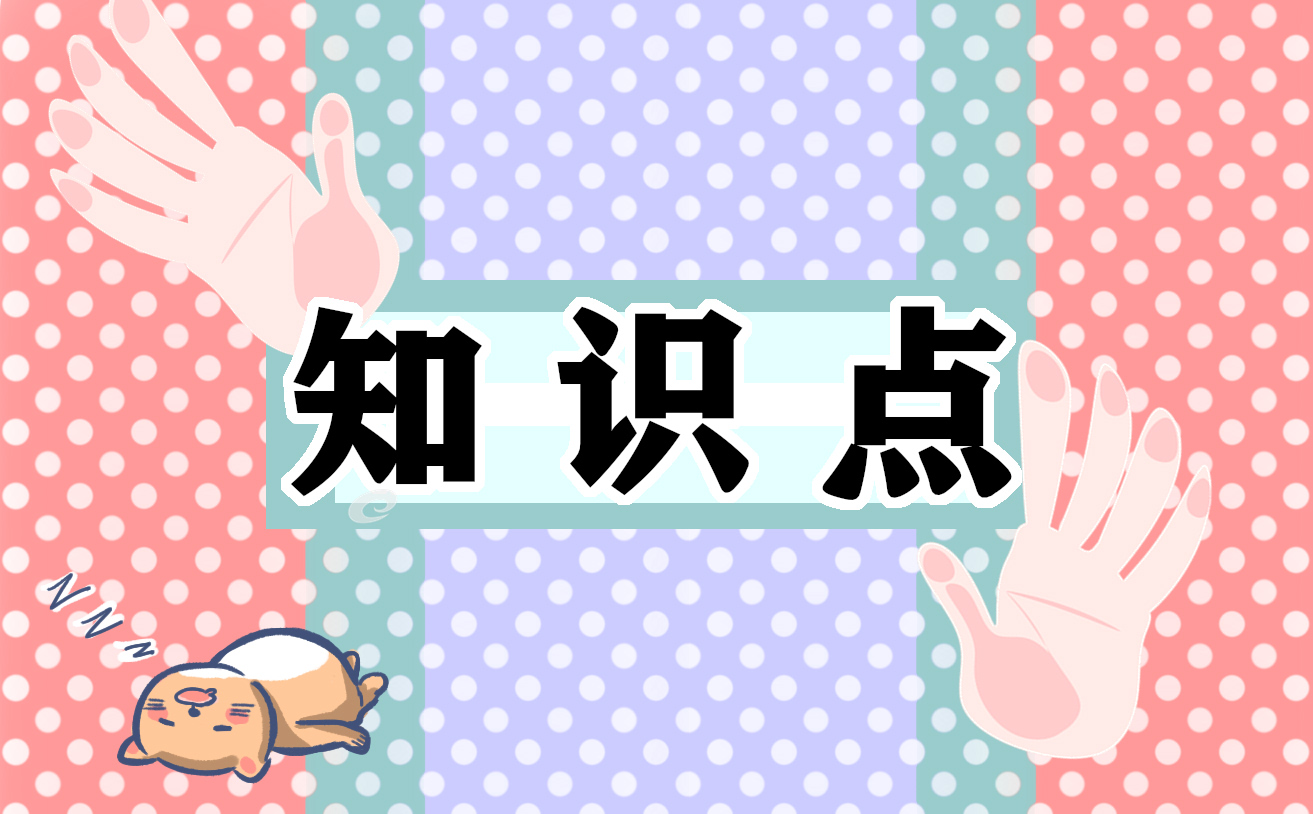高二年级英语重要内容掌握知识点
学霸不是男生的专利,女汉子也可以。不就是高考,高三随便准备一下,学习一下就过去了。以下是小编整理的有关高考考生必看的高二年级英语重要知识点,希望对您有所帮助,望各位考生能够喜欢。

高二年级英语重要知识点1
paper复数:papers。paper,作名词时意思是“纸;论文;文件;报纸”,作及物动词时意思是“用纸糊;用纸包装”,作不及物动词时意思是“贴糊墙纸;发交通违章传票”,作形容词时意思是“纸做的”。
papers基本含义
n.纸;纸张;报纸;文件;文献;
v.贴壁纸;
paper的第三人称单数和复数;
I had papers relating to the children which my wife and I had to sign.
我有一些关于孩子的文件需要我和妻子签字。
原型:paper
paper基本含义
n.纸;纸张;报纸;文件;文献;
v.贴壁纸;
He wrote his name down on a piece of paper for me.
他把他的名字写在一张纸上交给我。
第三人称单数:papers
复数:papers
现在分词:papering
过去式:papered
过去分词:papered
高二年级英语重要知识点2
回答反义疑问句时,若事实是肯定的,用yes回答;若事实是否定的,就用no来回答。例如:Let’s go swimming,shall we?Yes,let’s go。
祈使句的反义疑问句
(1)祈使句的反义疑问部分为肯定形式,要用shall,will。如:Pass me the book,will you?
(2)Let’s表示第一人称的祈使句,反义疑问句为“Shall we?”。如:Let’s go for a walk,shall we?
(3)Let me和Let us 表示第二人称的祈使句,反义疑问句为“will you?”。如:Let us go for a walk,will you?
(4)其它行为动词引起的祈使句,无论其陈述部分是否定还是肯定的祈使句,多用“will you?”,表一种客气的语气。如:Listen to me,will you?
但在肯定的祈使句后有时也用“won’t you?”表“提醒对方注意”或表“邀请”。如:Have a cup of coffee,won’t you?
祈使句的反义疑问句形式
(1)Let's表示说话人向对方提出建议,简短问句的主语用we表示,问句用shall we或shan't we。如:Let's have a cup of tea,shall we(shan't we)
(2)Let me或 Let us表示听话人提出请求,问句用will you或won't you.如:Let me have a rest,will you(won't you).
注意:回答Let's~的反义疑问句句型时,肯定时用Yes,let's.否定时用NO,let's not.
(3)其它的祈使句后可以加一个简短问句,使语气变得客气一些.如:Have a rest,will you.
基本类型
在祈使句后面跟反义疑问句,主要有以下几种类型:
1.用will you
Keep that door closed,will you?你让那门关着好吗?
Serve out the rice,will you?你来给大家盛饭,好吗?
2.用won’t you
Drive carefully,won't you?开车要小心些,好吗?
3.用would you
Come this way,would you?请您走这边,好吗?
Open a window,would you?你打开一扇窗,好不好?
高二年级英语重要知识点3
Ⅰ.Hot words and hot phrases常用词与常用词组
1.Medical studies show that AIDS virus cannot be transmitted via the following routes:cups,glasses,toilet seats,swimming pools,mosquitoes,other insects or blood donation.(P.49)
2.AIDS is a disease that breaks down the body's immune system and leaves a person defenceless against infections and illness.(P.51)
3.People get AIDS after having been infected with the HIV virus.(P.51)
4.People transmit HIV by having unprotected sex,by receiving infected blood transfusions or,as in Xiaohua's case,through birth.(P.51)
5.Xiaohua's mother contracted the HIV virus when she was 28,and she died of AIDS only three years after Xiaohua was born.(P.51)
6.The disease is spreading faster in Africa and parts of Asia,mainly because of a lack of proper health care,prevention and education.(P.51)
7.The drugs that are available are much too expensive and difficult to find.(P.51)
8....but she does not let that knowledge discourage her.(P.51)
9.She also goes to visit other AIDS patients in hospitals across the country to support them and cheer them up.(P.51)
10.The disease is not the only thing that AIDS patients have to suffer from.(P.52)
11....that can persuade hospitals and companies to allocate more funds for AIDS research and education.(P.52)
12.Xiaohua has learnt to live with HIV and the fact she will eventually get AIDS.(P.52)
13.Two years ago,Dr Richards had asked me a great many questions and had taken samples of my blood.(P.55)
14.Mum held my hand and I saw that she was weeping.(P.55)
15.Cancer is a disease that begins in cells.(P.55)
16.In my body,the production of cells is disrupted.(P.55)
17.Doctors do know that cancer is not caused by injury and is not contagious—it does not spread from one person to another.(P.55)
18.The cancer in my body has been defeated for the moment.(P.55)
19.Living with cancer has made me realize how precious life is and how important it is for us to take every chance to live life to the fullest.(P.55)
20.Every day is a new opportunity and I have learnt to appreciate every minute of each day.
Ⅱ.Language points and grammar focus语言点和语法重点
A.Language points语言点
1.HIV/AIDS is incurable...(P.49)
AIDS is a disease that...leaves a person defenceless against infections and illness.(P.51)
本单元中由前缀或后缀派生出的反义词的小结
2.People get AIDS after having been infected with the HIV virus.(P.51)
完成时的动名词的被动式的内涵及用法
3.As with most diseases and disasters,the young suffer the most.
“定冠词 + 形容词/过去分词”表示“一类人”的用法的小结
4.I had been feeling sick for a long time and my mum had taken me to hospital to have me examined.(P.55)
1)过去完成进行时的内涵及用法
2)“to have + 宾语 + 过去分词”的两个内涵及用法
5.The treatment was successful and I was able to go home after exactly fourteen months,two days and six hours in hospital.(P.55)
was/were able to do与could do在内涵上的区别及各自的用法
6.I have been living with cancer for two years and...(P.55)
现在完成进行时的内涵及用法
Ⅲ.Skills of the four essential abilities:listening,speaking,reading and writing听、说、读、写四项基本能力的学习技巧
1.Listening:Master the main idea of a long dialogue through the inner connections among the questions so as to have better understanding of the questioned details
从各设问间的内在联系把握较长对话的中心思想,更好理解各检测点的细节
2.Speaking:Talk about deadly diseases and attitudes towards AIDS,cancer,etc.
关于那些致命疾病及对待艾滋病、癌症等的态度的谈论
3.Reading:Make full use of informational words and phrases
充分利用信息词
4.Writing:How to write a personal narrative
如何写一篇个人经历过的叙述性故事
